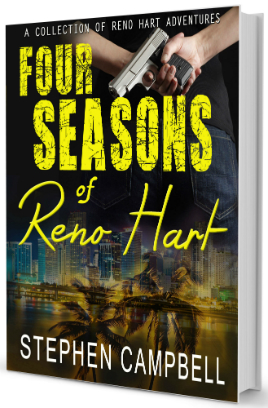River People, Goal People and My Three Words for 2015
For the past several years, I’ve enjoyed reading Chris Brogan’s January 1st post where he shares his three words for the new year. These are the words that will drive the focus of his goals and efforts for the coming year. I’ve decided to do the same thing for 2015, but before I share mine allow me to provide some background.
Earl Nightingale produced an audio essay years ago on Goal People and River People. In its most simple terms, he saw successful people falling into those two categories. Goal people, who pursue specific goals on their road to success, and river people, who throw themselves into a “river of interest” that can last a lifetime.
I’ve always been a goal person, but for the past two years I’ve tried to throw myself into a river of interest, writing. My success as a river person has been mixed, at least in terms of accomplishment. The river has carried me into writing classes, books on the craft of writing, writing conferences and the completion of several manuscripts and multiple short stories. But of all that work only one thing has been published. A short story titled GONE TOMORROW.
During that period, I launched two different writing-related podcasts, including my current show, The Author Biz, through which I’ve met many of my writing heroes. I learned a great deal from the guests on those shows, and from what I hear from listeners, others have as well.
I accomplished much over the past two years, but if I’d been tracking goals, I think I’d have published more, because publishing would (should) have been a primary goal.
The River of Interest has been educational and fun, but for the baseball fans among you it’s like spending two years in spring training and only playing one game.
I did finish what I was certain would be my first published novel, but both professionals and I found it lacking in several areas. This disappointment caused a period of doing anything but writing, which included the launch of The Author Biz. That took time, learning and practice as I developed a style and format for the show. But I am happy to report that it’s finding an audience more quickly than I expected.
As for the writing, I did begin again with what I’d hoped would be a short story, which turned into a short novel, featuring Reno Hart. I like Reno, but her character is still being developed through a series of short stories, that should be finished by now, but I allowed life to interrupt.
We all have issues in life that throw down obstacles between where we are now and where we want to be. Sometimes these come disguised as opportunities, sometimes as problems, and sometimes they look like relaxation. For me, the primary issue is a problem. The health of a family member took a dramatic turn for the worse last year and that dramatically altered my plans in the last quarter of 2014.
These problems aren’t going away in 2015. In fact, problems like these are likely to appear more often as friends and family age. I can’t ignore these problems, and I need to refocus on my work.
Does dealing with problems make me unique in some way? Nope. People deal with problems every day and still do amazing things. It’s what separates the accomplished from the rest of the world.
Much of my success in life has come from the ability to keep the different parts of my life separate, and to focus on the task at hand. I’ve done that by maintaining a schedule that’s been consistent for years. It’s been so consistent that I’m afraid I’m not going to be able to change it to meet my current needs. But it requires change, and the best way for me to make changes is by using goals. So I’ve decided to pull myself out of the warm, rolling waters of the River of Interest and back onto shore so I can set some goals that are meaningful and measurable in 2015.
To meet those goals, I need to be able to focus on my work when the time allows, rather than when my schedule tells me it’s time. Can I do it? Of course. You probably do this already. Mothers with small children do it every day. They work when the kids are asleep, or at a play day with friends. They work in 10 to 30-minute increments when time allows. It’s not the way I’ve worked in the past, but it’s going to have to be a component of how I work going forward.
So . . . that’s the background. Now on with my three words for 2015. The words that I’ll use to drive the focus of my goals and efforts for the coming year.
- Simplify
- Multiply
- Monetize
I’ll explain what the words mean to me and how they’ll impact my 2015 goals in my next post.



